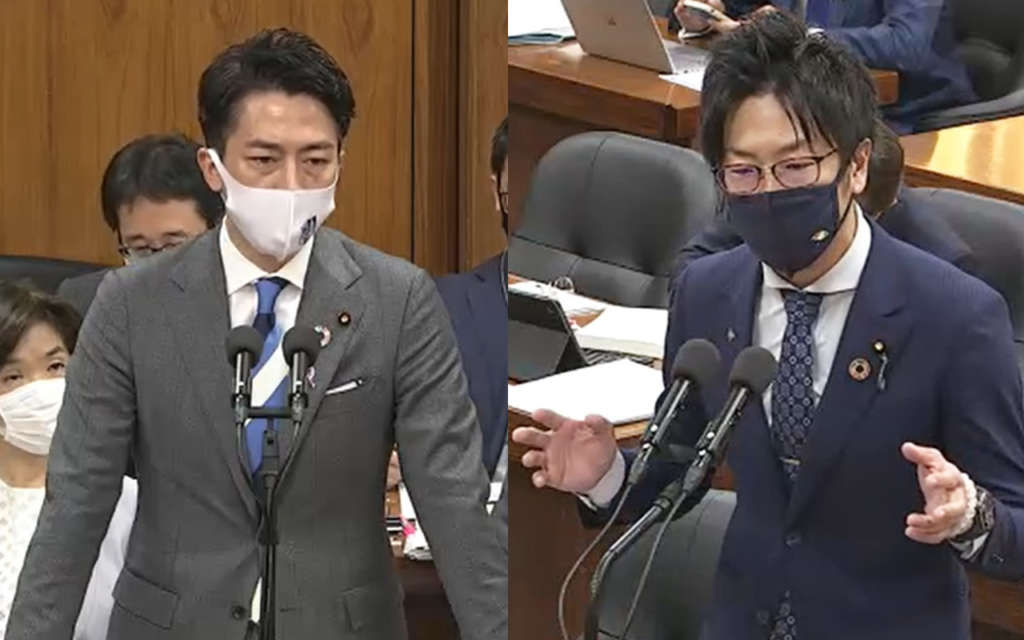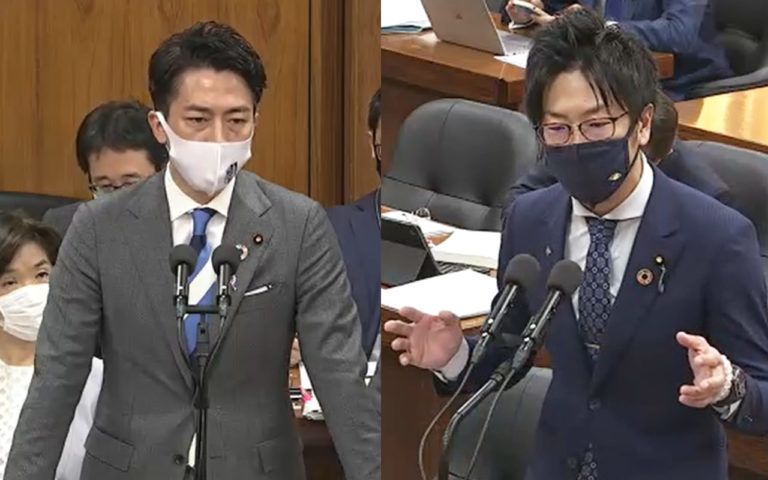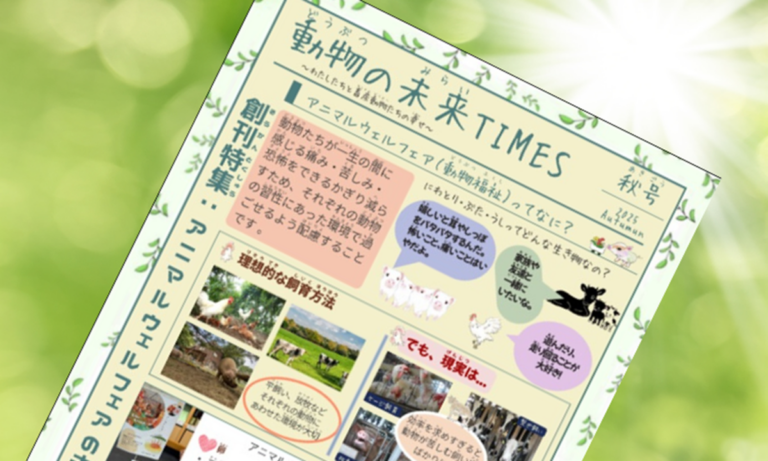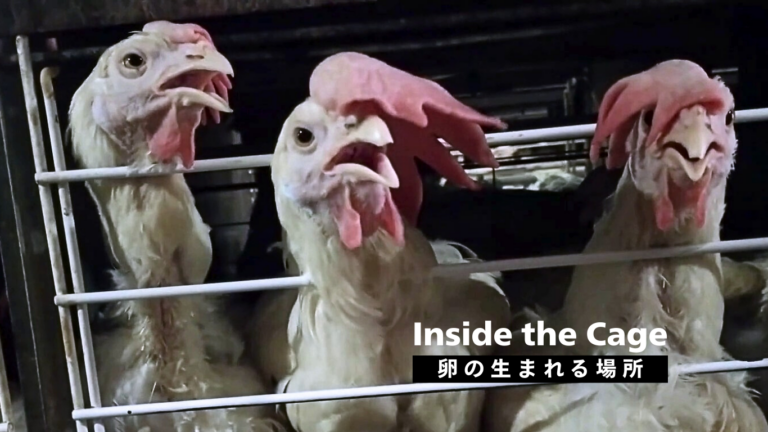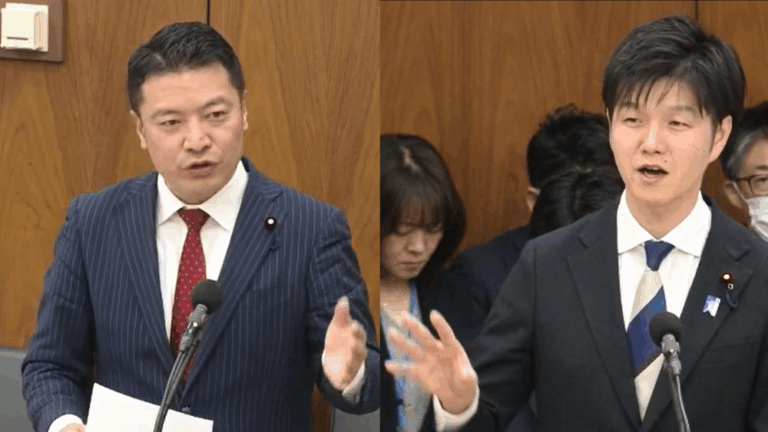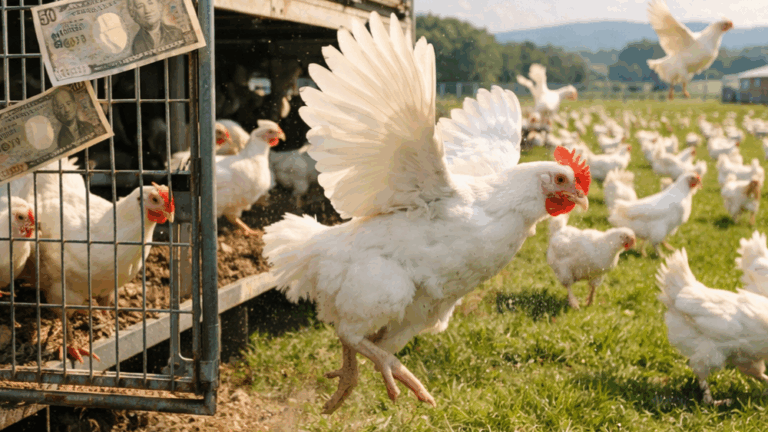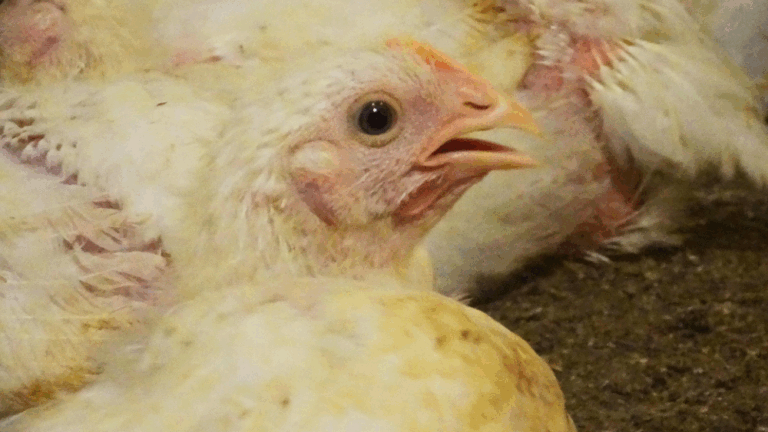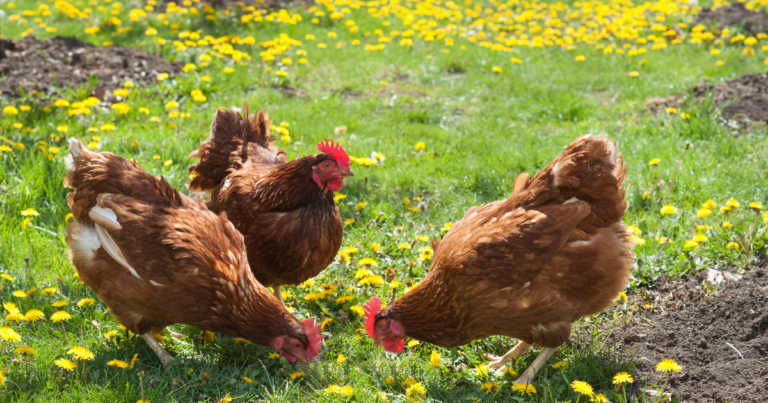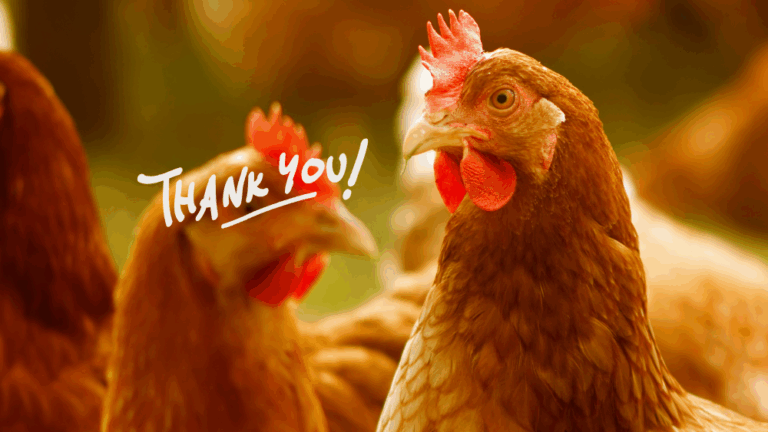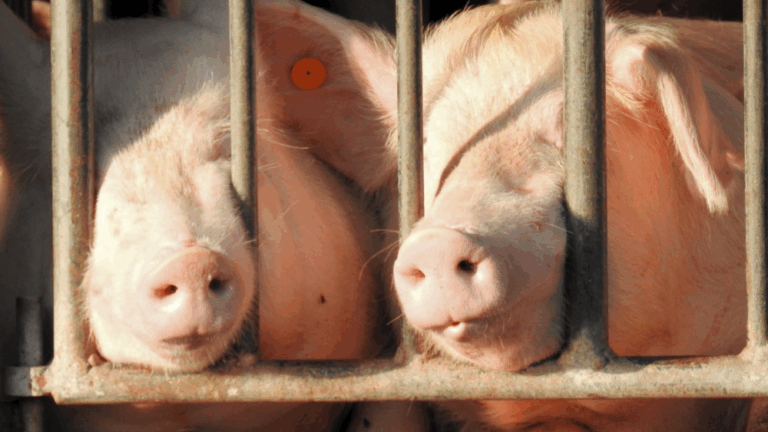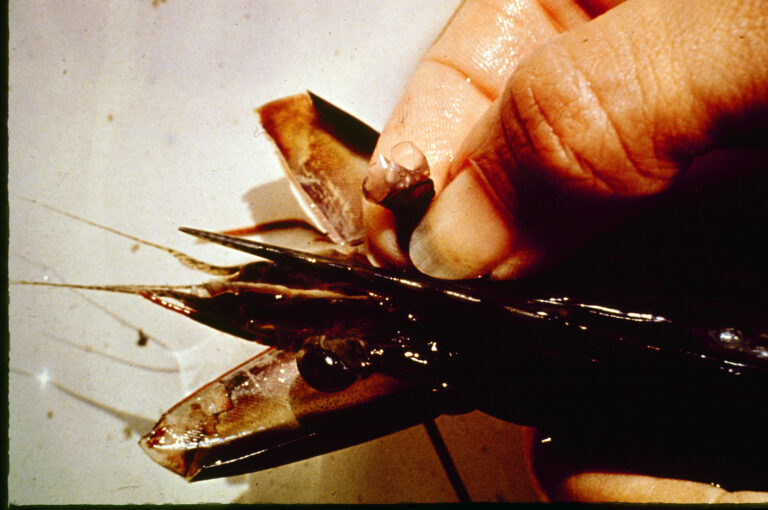Animal cruelty, in treatment of any animals that humans deal with in society, is something that must not exist, either legally or morally, and it must be eliminated in industrial animals as well.
Shinjiro Koizumi, Minister of the Environment
This was clarified by a question from a member of the House of Representatives, Keinin Horikoshi (Gunma), at the Environment Committee of the House of Representatives on November 17, 2020. For many, this must be taken for granted. However, in the livestock industry, animal cruelty has become commonplace, and mistaken procedures have become commonplace, and the self-cleansing action to correct them has not worked, and the animals used for livestock have been silent and just continue to be hurt — this state of being is the reality.
We can think that the questions asked by Representative Horikoshi and the answers given by the Ministry of the Environment are aimed at everyone engaged in the livestock industry. For anyone who has stepped into or around a livestock farm, a slaughterhouse, or a truck that is transporting livestock, the message will be to correct it if one sees any behavior that appears to be abuse.
Animal cruelty charges apply to all animals
Mr. Horikoshi said, “I am interested in whether the strengthening of penalties for animal cruelty and abandonment can be appropriately extended not only to pet animals but also to these livestock animals, exhibited animals, and laboratory animals”, asking questions to ensure that animal cruelty charges clearly apply especially for livestock animals.
He clarified the responsibility of humans in using animals: “As with any crime, animal cruelty is not something where people would notice. Not only pets, but this also applies to livestock animals, and of course animals cannot speak out when they are hurt, and we still need to correct it appropriately.” Furthermore, he stated that it’s important for the industry to eliminate cruelty: “In the livestock industry, there are many situations in which we cannot escape from cruelty, and if this continues, I think it is extremely likely that the health of the livestock industry itself will be impaired.”
In response to this, Minister of the Environment Shinjiro Koizumi replied: “Animal cruelty, in treatment of any animals that humans deal with in society, is something that must not exist, either legally or morally, and it must be eliminated in industrial animals as well.” “Even regarding animals whose lives we are using through eating, based on the Act on Welfare and Management of Animals, we have to secure a rearing environment according to the type and habit of animals, and in the case of culling appropriate handling is required, such as by using a method that is as painless as possible. ” Furthermore, he said that he had agreed to a collaborative document between the Ministry of the Environment and the Ministry of Agriculture, Forestry and Fisheries, and promised to strengthen the efforts.
Mr. Horikoshi cited as an example foie gras production, which the majority of French people say should be banned, and in response Minister Koizumi stated that he personally chooses not to eat foie gras, and showed the younger generation of parliamentarians a growing awareness of the shift to foods that eliminate cruelty to animals and ethical consumption. We’d like to touch on this again in the article about foie gras.
What is “unreasonable” cruelty
There is usually no acceptable reason to hurt companion animals, but livestock animals are different. Many are in pain, suffering, and neglected. For that reason, farmers believe the superstitions that anything is allowed as long as they imply that cruelty is for the industry, and perhaps many citizens believe it also.
Animal protection groups are not the only ones who see crisis in this situation. As the Diet members get to know the actual situations, they feel the same.
When Representative Horikoshi questioned again the definition of the term “unreasonably” within the livestock industry, the Ministry of the Environment responded as follows.
“Article 44 of the Act prohibits unreasonable killings and unreasonable assaults, but we interpret this ‘unreasonably’ in the text as, like the general interpretation in other laws and regulations, ‘generally without a justifiable reason’.
On that basis, we understand that killing or assaulting without a justifiable reason generally refers to cruel treatment like causing unnecessarily severe pain, and the specific judgment is based on the purpose, means, response, etc. of the act, and the degree of animal pain caused by the act of violence, which should be comprehensively judged based on the sound common sense of the general public as the social norm.
It is difficult to uniformly indicate here an act that corresponds to killing without a justifiable reason because it depends on the comprehensive judgment and the common sense at that time, but by comprehensively considering and comparing to common sense for example for the purpose whether there is a rational necessity for that act in the first place, for the means whether it is a cruel act that is not socially acceptable, whether there is an effort to reduce pain, or the degree of pain for the animal like unnecessarily long suffering, if it is not appropriate we would believe that there is a possibility of unreasonable killing or cruelty.”
Even for the livestock industry, the following can be read as “unreasonable”:
- Unnecessarily strong pain is “unreasonable”
- Continuing to cause pain due to not taking rational methods is “unreasonable”.
- Killing due to not taking rational methods is “unreasonable”.
- A cruel act that cannot be said to be socially acceptable is “unreasonable”
- The cruel act performed despite the fact that there is a rational method that is economically acceptable is “unreasonable”.
- Repeating avoidable accidents and pain is “unreasonable” (because it is unlikely that efforts are being made to reduce pain).
In addition, since the judgment is based on the sound common sense of the general public, we can say that it is clearly stated that something like the cruel procedure of the industry being the matter of course is not a judgment standard. This means that no matter how much the livestock industry argues that it’s “necessary pain”, it can be “unreasonable animal cruelty” if there is another reasonable and economically acceptable method.
“Even if the rearing party makes a general judgment about the rearing that it is rational, of course this are cases otherwise in terms of common sense,” so it’s important to follow specifically written guidelines (animal welfare regulations) like OIE.
Killing by hanging, live boiling, and weakening to death should be eliminated
You may feel this is of course. But the norm in the domestic livestock industry is to continue to forgive these.
Representative Horikoshi would have asked many times about this matter… He explained as an example the case where about 500,000 chickens every year are thrown into boiling water still alive and burned to death. He also mentioned that at a medium-sized pig farm in Japan, pigs were killed by hanging (not cervical dislocation like in hanging punishment in Japan). On that basis, he checked whether the following items are going to be eliminated as a country on the premise that they correspond to “unreasonableness”.
1: Acts of suffocating over time such as hanging
2: Acts of sending to the next process like hot water treatment or industrial waste without complete culling
3: Acts to avoid the responsibility of euthanasia and lead to starvation or debilitating death
- Acts of suffocating over time such as hanging
- Acts of sending to the next process like hot water treatment or industrial waste without complete culling
- Acts to avoid the responsibility of euthanasia and leading to starving or weakening to death
The Ministry of the Environment gave a respectable response.
“As your honor pointed out, if I take for example weakening to death, some of them may have died with or without treatment so I think it is difficult to uniformly judge whether an individual act is an abuse, but I think it is difficult to assume in general that the law allows such act as those you point out.”
Companies have a habit of escaping the term legal compliance in the first place, but they will need to make sure that the livestock products they procure are actually produced from legal compliance. And everyone involved in processes involving live farm animals, such as on farms, slaughter, and transportation, must be aware of this.
Since the enforcement of the revised Act on Welfare and Protection of Animals in June 2020, all veterinarians have been obliged to report any animal cruelty. Shouldn’t dismiss it just because it’s a workmate. If the guidelines aren’t followed, it should be considered an inappropriate method and may be illegal, and work should be performed more strictly. It should have more responsibility than other professions because it deals with lives and earns money at the expense of their lives.
And, in response to this answer, Representative Horikoshi said:
“Not all farmers, of course. However, once such a case is out there, it can hurt the entire industry.”
Keeping that in mind, we’d like the industry to use its self-cleansing function. In the future, there will be a strong demand for a mechanism to eliminate abuse by oneself, an effort to improve the soundness by incorporating a third party’s eyes, and an effort on the procurement side to not procure without such a mechanism.
